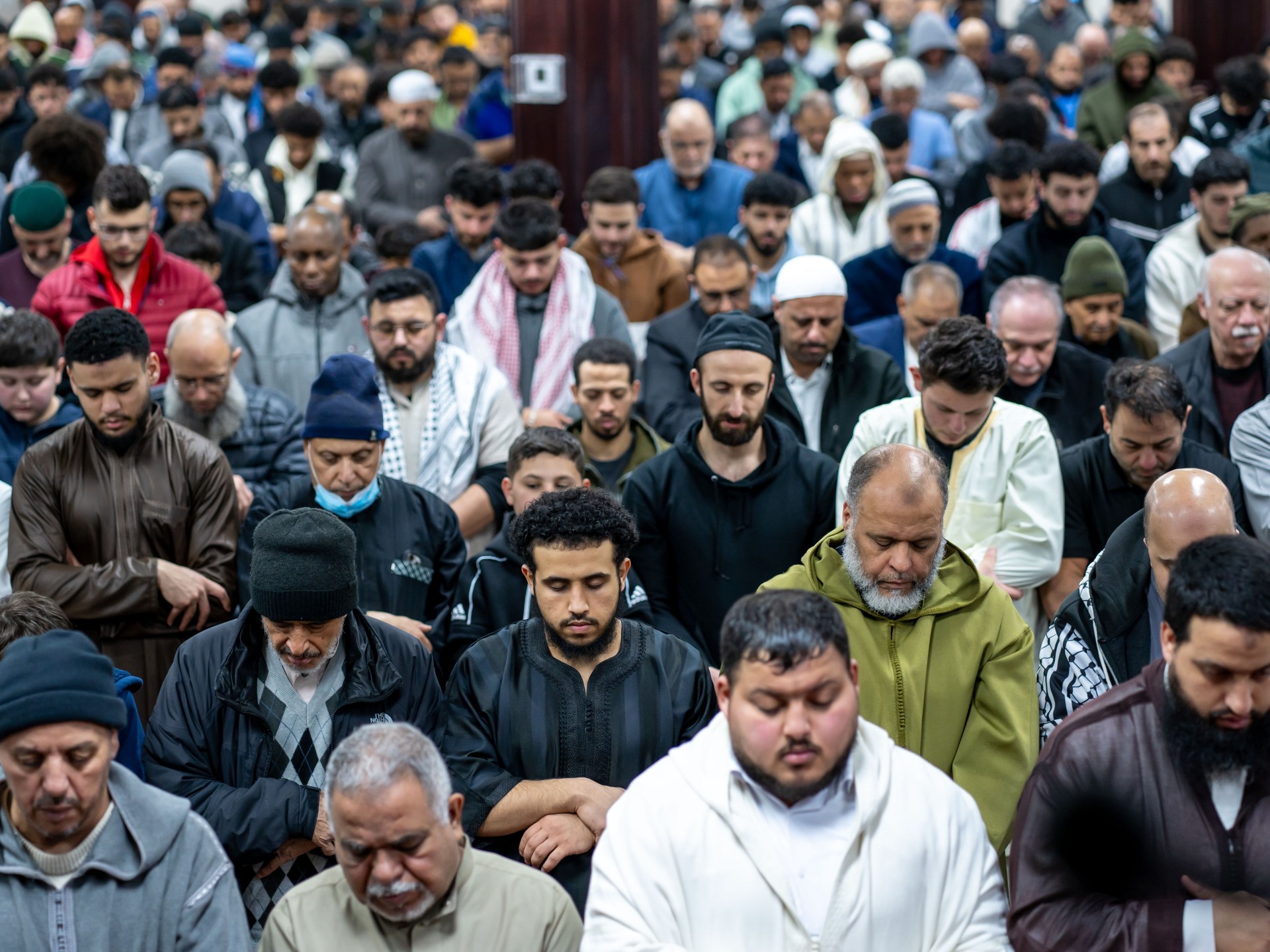
Dearborn Heights, Michigan, the US – For most of her life, Yasmeen Hamed has been an observant Muslim. But by her own admission, she did not often wear the hijab in public. She was hardly an apostate – here in this Detroit suburb, the Palestinian American mother of four is known for her charity work caring for gravely injured Palestinian children living under Israeli occupation, and she did don the hijab at the mosque – but she stopped short of complying with the religious edict requiring women to wear the veil at all times in public.
But then the images from Israel’s siege of Gaza began to unspool across her phone screen and she found herself traumatised by the violence and its unimaginable scale, yet also drawn to the religious devotion of the embattled Palestinian women continuing to wear their bloodied and tattered prayer garments – known as an “isdal” or “toub salah” – even at night in the event that they are killed in their sleep.
If their grief saddened Hamed, their grace – their nobility – inspired her to rededicate herself, fully, to the Islamic faith that she had held at arm’s length, if only slightly, for most of her 46 years. And so, on the first day of Ramadan this year, she put on the hijab that symbolises both her strengthened faith in Islam, and her solidarity with her sisters in Gaza.
Now, with Ramadan coming to an end, and Israel’s bombs continuing to disfigure the Palestinian landscape, Hamed prays harder, and more often, and she reaches for her hijab whenever she leaves the house just as reflexively as she does her purse.
“With what’s happening in Gaza, you’re questioning your mortality,” she told Al Jazeera in an interview at her home here in Dearborn Heights. “I didn’t want to die not wearing the hijab. When I was younger I used to say, ‘Oh, I’ll be more religious when I get older. I’ll go to Hajj when I’m older. I’ll put the hijab on when I’m older’ and well, I’m older now.”
Across the United States, Ramadan is different for Muslims like Hamed this year.
Traditionally a celebratory time of fasting, feasting and charity, Islam’s holy month of worship has been a far more sombre affair since it began on March 10, nearly five months to the day after Israel began its bombardment and blockade of Gaza.
The killing of more than 33,175 Palestinians and the wounding of another 75,886 have transformed Ramadan’s typically joyous atmosphere into one that is more spiritual, more emotive, and more thoughtful as Muslims in the US contemplate their relationship to Allah, and each other, amid a genocide so horrific that it has destroyed not only entire households and city blocks, but entire bloodlines by some estimates, meaning that there are no survivors bearing the family’s name.
Read More: World News | Entertainment News | Celeb News
Aljazera








